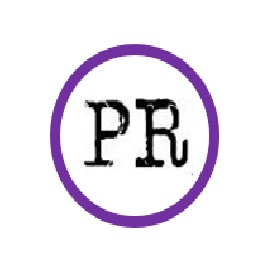NETWORKING FOR MEDICAL CODERS
The word “networking” often conjures up images of a huge conference room full of people in suits, giving fake smiles and firm handshakes. But networking opportunities are much more organic, and often are all around us. Networking skills are possibly the most important skills that a coder can obtain, second only to actual coding skills! Networking can help coders to find their first coding job, navigate the local employment opportunities, and secure mentorship to expand education.
A recent study of over 3,000 employees showed that over 85% of jobs were filled via networking1. This percentage is incredibly high, and shows how valuable contacts can be in all phases of a successful career. Breaking into the coding field, or moving into a different coding specialty can be difficult. Education and training are wonderful, but positions can be scarce, and it is important to have something to set a candidate apart from other applicants. Network contacts can allow for an application to move to Human Resources directly, and provide personal references that often lead to job offers.
Veteran coders can educate new coders about company environments, hiring processes, and departmental details. This valuable information lets coders “zero in” on positions and opportunities that are worth pursuing, and those that are best left alone. Each coder has strengths that should be fostered, and all work environments are not supportive to all coders’ needs. Network contacts share information and experiences that shape the view of an employment opportunity, and can advise as to whether a certain coder is best for a position. Experience in the work force brings knowledge that breeds unmatched mentorship and education skills. Networking allows new coders to tap into this mentorship and education, which they can then apply to their vision of career success.
So where are the best places to network within the coding community?
Of course, local chapter meetings are a wonderful way to network. Coders of all talent levels, and from various types of coding employment. Don’t be shy! Strike up a conversation, let people know your name, and soak up all the knowledge you can from these fellow coders.
If you’re currently working in healthcare, or if you’re enrolled in coding education, get to know your teachers, fellow coworkers, and fellow teachers. Not just a name/face association, but truly get to know the people who surround your coding efforts. You will find that someone who sat next to you during your education has the same career interests as you, or has a contact in company that has job openings.
Social media’s imprint on how coders find colleagues and grow their network cannot be ignored. We’re all familiar with the social media sites, both professional and those strictly social, that allow for networking with other coding students or professionals. When participating in social media to network, remain consistant, forthcoming, and active on the sites and group pages. Simply logging on once to say “Who has job postings?” does not send a message that a coder is committed to finding work and networking. Introduce yourself through a post, and describe briefly how you began involved in medical coding. Participate in conversations and discussions, remaining respectful of other coders, their opinions, and remaining positive even when discussing organizations with which you’ve had a bad experience. Be supportive, and offer congratulations to coders who are celebrating victories, or support for those trying to overcome defeats.
It’s so easy to stay focused on ourselves as we travel through our career journey. Taking the time to open yourself up to new friends, new contacts, and new employment opportunities will lead you to possibilities you could never have imagined.
